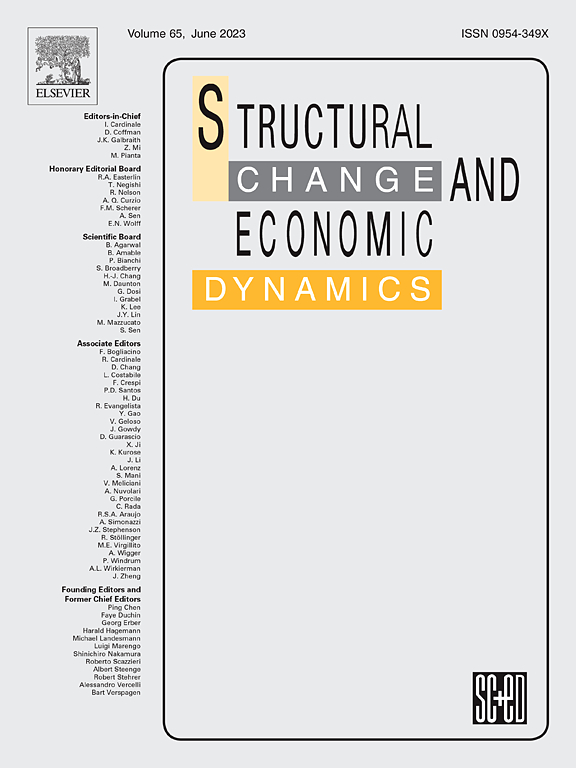How does urban industrial structure upgrading affect green productivity? The moderating role of smart city development
IF 5
2区 经济学
Q1 ECONOMICS
引用次数: 0
Abstract
The concept of the smart city, which has recently gained prominence as a new urbanization model, represents a practical approach to achieving a balance between economic development and environmental protection. This article analyzes the effect of upgrading urban industrial structures on green total factor productivity (GTFP) and addresses a gap in evaluating the mediating role of smart city development. Utilizing panel data from Chinese prefecture-level cities, the study finds that internal advancements and diversification in industrial structures significantly enhance GTFP, while industrial structure rationalization displays a complex, non-linear correlation with GTFP. Moreover, smart city development is found to positively moderate the relationship between industrial structure and productivity, particularly in terms of outer-advancement, diversification, and rationalization. The moderating effect is evident in green technical efficiency rather than green technological innovation. Cluster analysis reveals significant effects in regions characterized by irrational, diversified, and naturally rational industrial structures. Additionally, the study identifies five impact mechanisms facilitated by smart cities, namely ICT, finance development, digitalization, smart governance, and social trust. These conclusions are of material significance to promote high-quality urban development.
城市产业结构升级如何影响绿色生产力?智慧城市发展的调节作用
智慧城市的概念最近作为一种新型城市化模式而备受关注,它代表了一种实现经济发展与环境保护之间平衡的实用方法。本文分析了城市产业结构升级对绿色全要素生产率(GTFP)的影响,解决了智慧城市发展中介作用评价的空白。利用中国地级市的面板数据,研究发现产业结构的内部进步和多元化显著提高了GTFP,而产业结构合理化与GTFP表现出复杂的非线性相关关系。此外,研究发现,智慧城市发展对产业结构与生产率之间的关系具有正向调节作用,尤其是在外向型、多元化和合理化方面。对绿色技术效率的调节作用明显,对绿色技术创新的调节作用不明显。聚类分析表明,在产业结构不合理、多元和自然合理的地区,效应显著。此外,该研究确定了智慧城市促进的五种影响机制,即信息通信技术、金融发展、数字化、智慧治理和社会信任。这些结论对促进城市高质量发展具有重要意义。
本文章由计算机程序翻译,如有差异,请以英文原文为准。
求助全文
约1分钟内获得全文
求助全文
来源期刊

Structural Change and Economic Dynamics
ECONOMICS-
CiteScore
9.60
自引率
4.90%
发文量
159
期刊介绍:
Structural Change and Economic Dynamics publishes articles about theoretical, applied and methodological aspects of structural change in economic systems. The journal publishes work analysing dynamics and structural breaks in economic, technological, behavioural and institutional patterns.
 求助内容:
求助内容: 应助结果提醒方式:
应助结果提醒方式:


